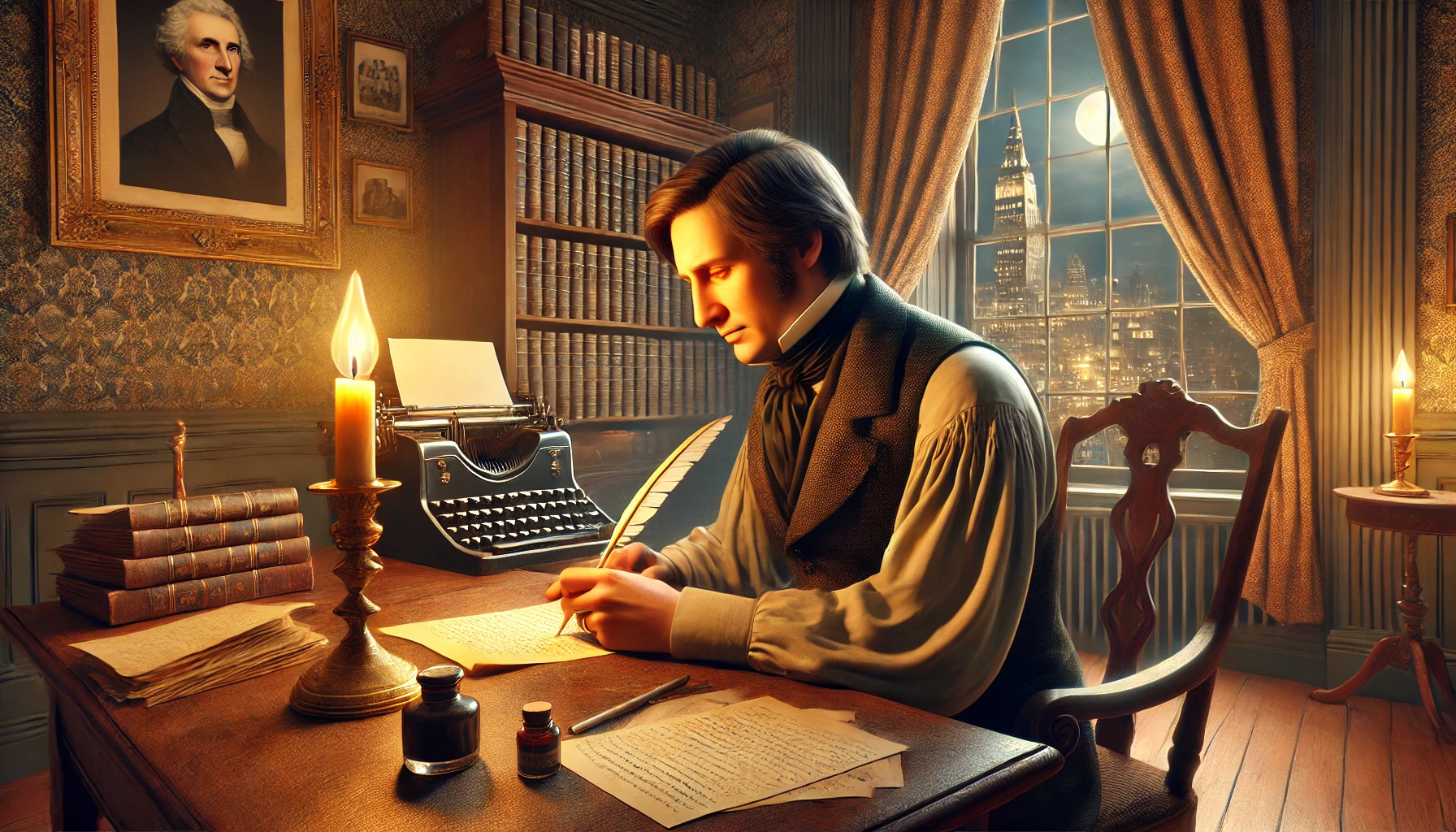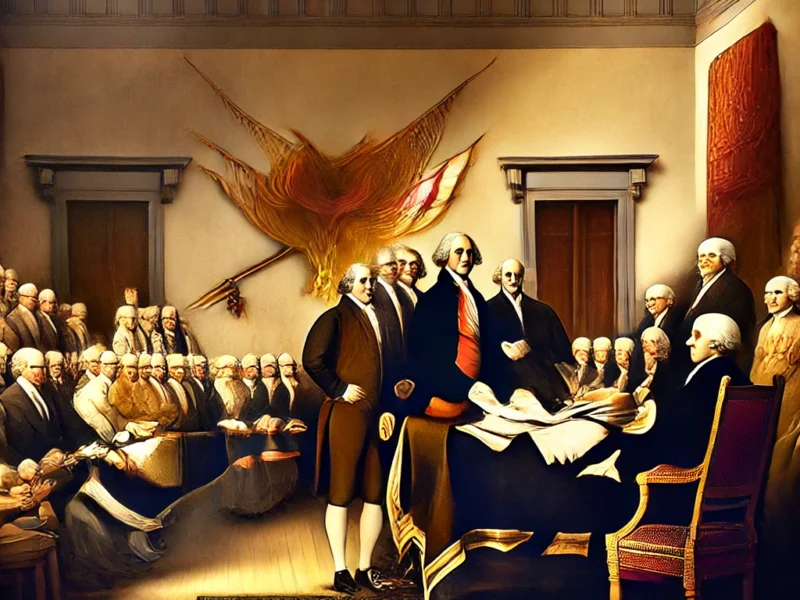Washington Irving (1783–1859) is often celebrated as one of the first American writers to gain international recognition, earning him the title of “The Father of American Literature.” His imaginative storytelling, vivid descriptions, and ability to blend humor with folklore helped shape the foundation of American literary tradition. Best known for his short stories “Rip Van Winkle” and “The Legend of Sleepy Hollow,” Irving’s work has captivated readers for generations.
Born on April 3, 1783, in New York City, Irving grew up during a time when the United States was in its infancy. His early experiences in the bustling, diverse city of New York influenced his writing, which often reflected a mix of European sophistication and uniquely American themes. As a young man, Irving studied law but found his passion in writing and travel.
In 1809, Irving published his first major work, A History of New York from the Beginning of the World to the End of the Dutch Dynasty, under the pseudonym “Diedrich Knickerbocker.” The satirical account of New York’s early history, filled with humor and wit, was an immediate success and cemented his reputation as a writer.
Irving’s literary career reached new heights with The Sketch Book of Geoffrey Crayon, Gent. (1819–1820), a collection of essays and stories. It included two of his most famous tales: “Rip Van Winkle,” a story of a man who sleeps through the American Revolution, and “The Legend of Sleepy Hollow,” the haunting tale of Ichabod Crane and the Headless Horseman. These works blended European folklore with distinctly American settings and characters, showcasing Irving’s ability to craft stories that resonated with readers on both sides of the Atlantic.
Beyond fiction, Irving contributed to American culture through his historical works, including A History of the Life and Voyages of Christopher Columbus (1828) and The Life of George Washington (1855–1859). His scholarly approach and engaging prose brought historical figures to life, further cementing his influence as a writer.
Irving spent much of his life traveling between Europe and America, serving as a diplomat in Spain from 1842 to 1846. His experiences abroad enriched his storytelling, allowing him to incorporate elements of European culture and history into his work.
Washington Irving’s legacy lies not only in his literary achievements but also in his role as a pioneer of American storytelling. He demonstrated that American writers could create works that stood alongside European literary traditions while capturing the essence of the burgeoning United States. Today, his stories remain beloved classics, celebrated for their humor, imagination, and cultural significance.



